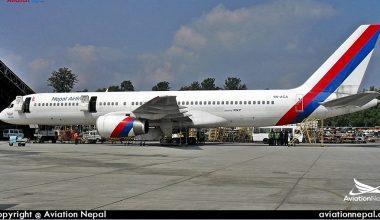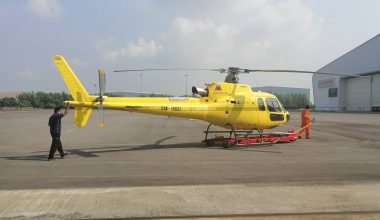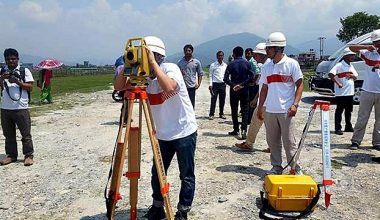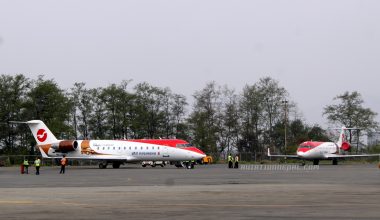Every human activity including air transport also has an impact on the environment. The impact has several forms which include disturbance caused by aircraft noise and emission by aircraft engine. The major concern in this industry is greenhouse gas emission and its impacts on the environment and climate change.
The largest contributor to human-induced CO2 is power generation (24%), mostly produced by coal and gas-fired stations. Next is land use change at 18%, then agriculture, industry and transport at 14% each (aviation is part of transport). Buildings (8%), other energy related activities (5%) and waste (3%) make up the rest.
Aviation produces around 2% of the world’s man-made emissions of carbon dioxide (CO2), according to the United Nations Intergovernmental Panel on Climate Change (IPCC). Although 91.5% and 92.5% of aircraft engine exhaust is normal atmospheric oxygen and nitrogen, water vapor, nitrogen oxides, carbon monoxide, sulphur oxides are some gases emitted by aircraft exhaust. However, a growing carbon footprint is unacceptable for any industry which is why the aviation industry, from manufacturers to airports to airlines to air traffic management, are all working hard to limit greenhouse gas emissions.
There are many references to aviation having a greater effect than other industries because of the height at which the emissions are released. The most significant greenhouse gas, CO2, does not have any additional impact due to the difference in altitude, the impact is the same. However, other emissions such as NOx and water vapour can have more of an effect at higher altitudes.
Looking to the future, the industry is taking many measures to mitigate its climate change impact and the IPCC estimates that aviation’s total contribution, including CO2 and other effects, would likely rise to 5% (with a worst-case scenario of 15% of human emissions) by 2050. However, it is important to note that the corresponding impact of aviation will also depend on the success of other sectors to regulate their emissions.
Airlines companies like Airbus, Boeing and other manufacturers are also trying to minimize the effects of such emission. Airbus in collaboration with Rolls Royce and Siemens has already started to develop hybrid plane which can be a great boon for the aviation sector in mitigating environmental impacts.






